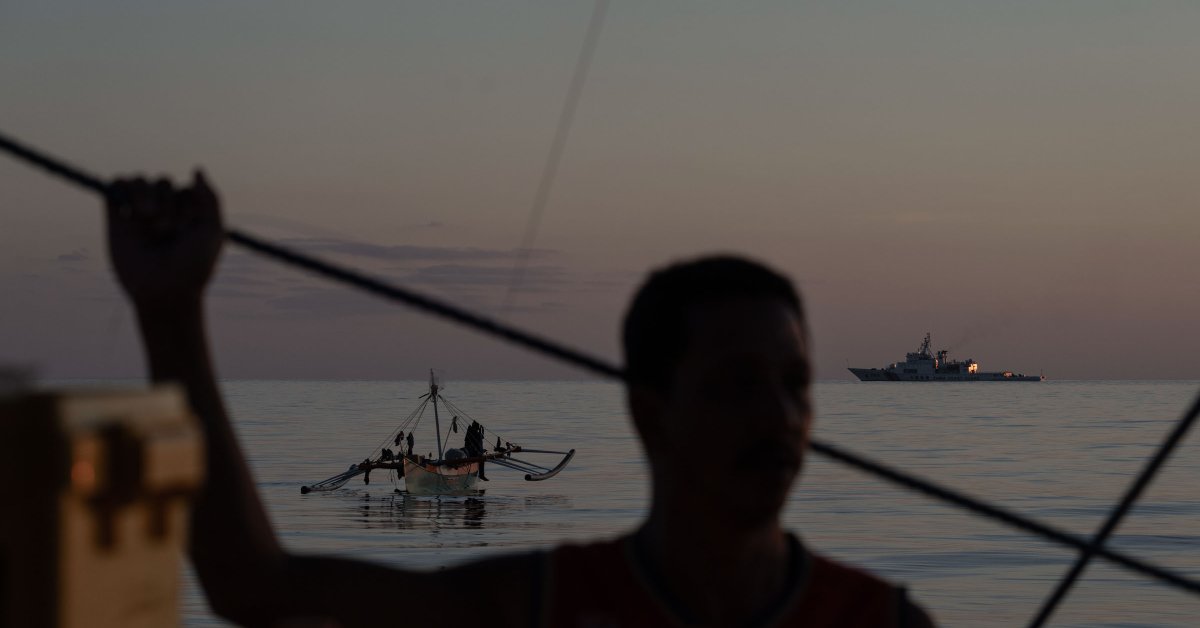Ocean Futures Under Threat: A Geopolitical Analysis

Welcome to your ultimate source for breaking news, trending updates, and in-depth stories from around the world. Whether it's politics, technology, entertainment, sports, or lifestyle, we bring you real-time updates that keep you informed and ahead of the curve.
Our team works tirelessly to ensure you never miss a moment. From the latest developments in global events to the most talked-about topics on social media, our news platform is designed to deliver accurate and timely information, all in one place.
Stay in the know and join thousands of readers who trust us for reliable, up-to-date content. Explore our expertly curated articles and dive deeper into the stories that matter to you. Visit Best Website now and be part of the conversation. Don't miss out on the headlines that shape our world!
Table of Contents
Ocean Futures Under Threat: A Geopolitical Analysis
The world's oceans, vital for climate regulation, biodiversity, and global food security, face unprecedented threats. These threats aren't solely environmental; they're deeply intertwined with complex geopolitical dynamics, creating a volatile future for marine resources and international cooperation. From escalating resource competition to the impacts of climate change, the ocean's future is increasingly shaped by the actions – and inactions – of nations around the globe.
The Race for Ocean Resources: A New Cold War?
The ocean's depths hold vast, untapped resources: polymetallic nodules rich in minerals critical for green technologies, untapped fisheries, and potentially massive reserves of hydrocarbons. This abundance fuels intense competition, particularly in the Arctic and the increasingly accessible deep sea. Countries are staking claims, deploying advanced technologies, and engaging in often opaque negotiations, mirroring a new kind of geopolitical struggle. The lack of robust international frameworks to govern these activities raises concerns about environmental damage and potential conflict. The UN Convention on the Law of the Sea (UNCLOS) provides a legal foundation, but its enforcement remains a challenge, particularly in areas beyond national jurisdiction (Areas Beyond National Jurisdiction or ABNJ).
Climate Change: An Existential Threat to Marine Ecosystems
Climate change acts as a geopolitical multiplier, exacerbating existing tensions and creating new ones. Rising sea levels threaten coastal communities and infrastructure globally, disproportionately impacting developing nations with limited resources for adaptation. Ocean acidification, driven by increased CO2 absorption, damages marine ecosystems and threatens fisheries, potentially igniting conflicts over dwindling resources. The melting Arctic ice cap opens new shipping routes and access to resources, prompting a scramble for control and raising concerns about environmental protection in this fragile ecosystem. International cooperation on climate mitigation is crucial, but achieving consensus among nations with divergent interests remains a significant hurdle.
Fisheries Conflicts and Food Security
Overfishing and destructive fishing practices pose severe threats to marine biodiversity and global food security. Many nations rely heavily on fish as a primary protein source, leading to intense competition and conflicts over fishing grounds. Illegal, unreported, and unregulated (IUU) fishing further depletes fish stocks and undermines efforts to manage fisheries sustainably. Addressing these challenges requires stronger international cooperation, improved monitoring and enforcement, and the adoption of sustainable fishing practices. The adoption of Marine Protected Areas (MPAs) is a key element of this strategy, but their effective implementation faces numerous challenges, particularly in areas with weak governance structures.
Navigating the Challenges: Towards a Sustainable Ocean Future
The future of our oceans requires a fundamental shift in global governance. Strengthening international cooperation, investing in scientific research and monitoring, and promoting sustainable practices are essential steps. This includes:
- Strengthening the UNCLOS framework: Enhancing its enforcement mechanisms and addressing gaps in its coverage is vital.
- Promoting sustainable fisheries management: Implementing stricter quotas, combating IUU fishing, and fostering collaboration between nations are crucial.
- Investing in marine protected areas (MPAs): Expanding the network of MPAs and ensuring their effective management is essential for biodiversity conservation.
- Accelerating climate change mitigation and adaptation: Reducing greenhouse gas emissions and supporting vulnerable communities to adapt to the impacts of climate change.
- Enhancing transparency and data sharing: Open access to data on ocean resources and environmental conditions is vital for effective management.
The fate of the world's oceans is inextricably linked to global geopolitical stability. Addressing the challenges requires a concerted effort from nations worldwide, a commitment to multilateralism, and a recognition that a healthy ocean is essential for the well-being of all. The time to act is now, before the escalating geopolitical pressures permanently damage the delicate balance of our marine ecosystems. Learn more about the ongoing efforts to protect our oceans by visiting [link to relevant UN or NGO website].

Thank you for visiting our website, your trusted source for the latest updates and in-depth coverage on Ocean Futures Under Threat: A Geopolitical Analysis. We're committed to keeping you informed with timely and accurate information to meet your curiosity and needs.
If you have any questions, suggestions, or feedback, we'd love to hear from you. Your insights are valuable to us and help us improve to serve you better. Feel free to reach out through our contact page.
Don't forget to bookmark our website and check back regularly for the latest headlines and trending topics. See you next time, and thank you for being part of our growing community!
Featured Posts
-
 Sinner Eyes Maiden Grand Slam At French Open
Jun 07, 2025
Sinner Eyes Maiden Grand Slam At French Open
Jun 07, 2025 -
 World Pride 2024 D C Parade Marks Historic First Celebration
Jun 07, 2025
World Pride 2024 D C Parade Marks Historic First Celebration
Jun 07, 2025 -
 Can Sinner Upset Alcaraz In The French Open
Jun 07, 2025
Can Sinner Upset Alcaraz In The French Open
Jun 07, 2025 -
 Daphne Caruana Galizia And Yorgen Fenech Maksar Gangs Role In The Bombing And Murder
Jun 07, 2025
Daphne Caruana Galizia And Yorgen Fenech Maksar Gangs Role In The Bombing And Murder
Jun 07, 2025 -
 Nanoracks Iss Mission A Step Towards A Private Space Station
Jun 07, 2025
Nanoracks Iss Mission A Step Towards A Private Space Station
Jun 07, 2025
